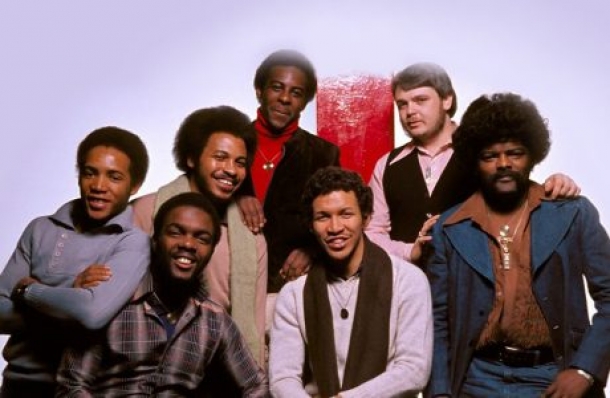Heatwave, Odyssey & Rose Royce at Colston hall in Bristol on Tuesday 27th March
Heatwave, Odyssey & Rose Royce at Colston hall in Bristol on Tuesday 27th March 2018
Completely cosmopolitan with international grooves to spare, Heatwave emerged as one of the disco era’s funkiest dance groups. American serviceman brothers Johnnie Wilder and his brother Keith Wilder were based in Germany when they first began performing, and upon their discharge from the Army, the duo stayed in that country. Both singers, the pair gigged in clubs and bars with an assortment of bands while still enlisted. However, they were constantly looking to expand their horizons, and in mid-year they relocated to the U.K. to link up with songwriter/keyboardist Rod Temperton.
The nascent Heatwave quickly came together with the addition of Spanish bassist Mario Mantese, Czechoslovakian drummer Emest Berger, and American guitarists Jesse Whittens and Eric Johns. With so many musical roots between them, it was only natural that they rapidly developed a sophisticated sound, an edge which Temperton would use to push Heatwave ahead of their peers.
Jamming and ceaselessly touring the London club circuit allowed Heatwave to define and refine their music, eschewing straight disco beats for a sound that certainly contained that element, but fused it with a rich funk groove. That hard work paid off as the band signed to U.K. label GTO (Epic in the U.S) and began formulating their first album in fall 1976. They were paired in the studio with GTO house producer/session guitarist Barry Blue, who’d had his own string of hit singles, “Dancing on a Saturday Night” and “Do You Wanna Dance” among them in the early ’70s.
The recording sessions nearly derailed, however, when Whittens was murdered before the band had even entered the studio. He was replaced with rhythm guitarist Roy Carter, and a pair of singles, “Ain’t No Half Steppin'” and “Super Soul Sister,” appeared before the end of 1976, to be followed by January 1977’s anthemic “Boogie Nights.”
That single reached number two on the British pop charts (it wouldn’t appear on the American radar until later that summer, when it became a Top Five hit). The group’s long-awaited debut album, Too Hot to Handle, finally appeared in late spring 1977, giving Heatwave a number 11 hit in the U.S. It cruised to number five on the R&B charts, while the next single, the sweet soul ballad “Always and Forever,” closed out the year with a number two U.S. hit in December.
Again using Blue’s production skills, Heatwave released Central Heating in April 1978. The album rode firmly on the tails of its massive single, the classic “The Groove Line,” a hard-hitting dance groove that rocketed up the charts, leaving the album’s other single, the beautiful ballad “Mind Blowing Decisions,” gasping for air in its wake.
Despite multiple setbacks and tragedies during the 1980s, the Wilder brothers resurfaced in 1989 with the album Sound of Soul on Blatent. The following year, Johnnie Wilder released a solo spiritual album, My Goals, on Light. Neither sold well, but Heatwave itself was revitalized in 1991, when a remix version of their “Mind Blowing Decisions” charted in the U.K and, by the middle of the decade, Keith Wilder had re-formed the band. Joined by bassist Dave Williamson, keyboardists Kevin Sutherland and Byron Byrd, and guitarist Bill Jones, the reborn Heatwave launched an American tour with a live album, Live at the Greek Theater, arriving in 1997. Long-standing favorites of the retro dance circuit, Heatwave fans were also treated to a new extended club remix of “Boogie Nights” in 2002.
Ticket prices are excluding £1.50 delivery fee
